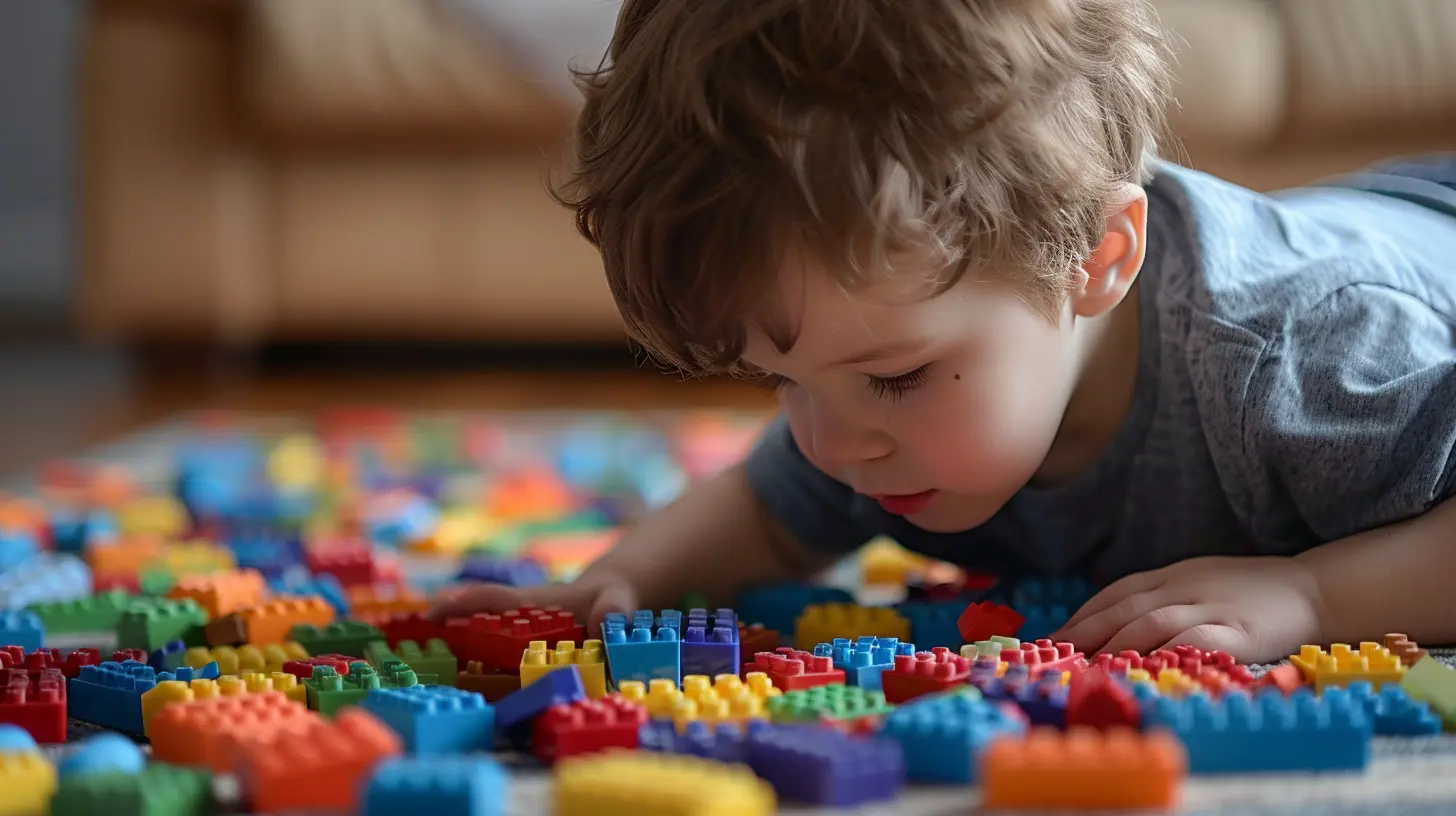How to Foster Independence in Autistic Children
30 May 2025
Raising an autistic child comes with its own set of joys and challenges. One of the key concerns for many parents is how to help their child become more independent. While every autistic child is unique, fostering independence is possible with patience, structure, and the right strategies.
Helping your child develop life skills for self-reliance takes time, but every little step counts. In this article, we’ll go over practical ways to encourage independence in autistic children while respecting their needs and abilities. 
Understanding Independence in Autism
Before diving into how to encourage independence, it’s crucial to understand what that means for an autistic child. Independence doesn’t necessarily mean they have to do everything on their own. Instead, it’s about empowering them with the skills and confidence to navigate the world in a way that works for them.Some children may need more support than others, and that’s okay. The goal is to help them develop the ability to make choices, complete daily tasks, and develop problem-solving skills. 
Why Fostering Independence Matters
Encouraging independence helps autistic children build self-confidence, improve their problem-solving skills, and prepare them for adulthood. It also reduces stress for both the child and the parent over time.When children learn to do things for themselves—whether it’s brushing their teeth, making simple decisions, or handling social situations—they gain a sense of achievement. This not only boosts their self-esteem but also enhances their overall quality of life. 
Strategies to Encourage Independence
Every child is different, but these strategies can help create a structured and supportive environment that fosters independence in autistic children.1. Establish Routines
Autistic children thrive on routines. A structured schedule provides predictability, reducing anxiety and helping them understand what is expected of them.- Create a daily routine that includes self-care, chores, and leisure activities.
- Use visual schedules with pictures or written lists to make them easier to follow.
- Keep routines consistent but allow for flexibility when needed.
By reinforcing routines, your child will gradually become more comfortable with daily tasks and learn to do them independently.
2. Break Tasks Into Small Steps
Large tasks can feel overwhelming, so breaking them down into smaller, manageable steps can make a huge difference.For example, instead of saying, “Get dressed,” break it down like this:
1. Pick out a shirt and pants.
2. Put on the shirt.
3. Put on the pants.
4. Put on socks and shoes.
This step-by-step approach, often called task analysis, allows children to master one part of the task at a time before moving on to the next.
3. Use Visual Supports
Many autistic children are visual learners, meaning they process information better when they see it rather than just hearing it. Visual supports can be incredibly helpful in promoting independence.- Picture schedules: Show them what needs to be done in a sequence.
- Checklists: Help them track their progress.
- Instructional videos: Demonstrate how to complete tasks.
Visual cues provide reminders without the need for constant verbal prompting, allowing children to complete tasks more independently.
4. Encourage Decision-Making
Independence starts with making choices, even small ones. Encourage your child to make decisions throughout the day.- Let them choose between two outfits.
- Ask what they’d like for a snack from two options.
- Allow them to pick an activity for playtime.
Giving controlled choices not only fosters independence but also helps them feel a sense of control over their lives.
5. Use Positive Reinforcement
Positive reinforcement works wonders in encouraging independence. Praise and rewards motivate children to keep trying new things.- Offer verbal praise (“Great job putting on your shoes!”).
- Use a reward chart to track progress.
- Give small incentives like stickers or extra playtime.
The key is to celebrate small wins and make your child feel proud of their accomplishments.
6. Teach Life Skills Early
Life skills are essential for independence, and the earlier they are introduced, the better. Start with simple skills and gradually build up.- Self-care: Brushing teeth, washing hands, dressing
- Household tasks: Making the bed, putting away toys, setting the table
- Social skills: Greeting others, asking for help, expressing needs
Teaching these skills in a supportive way allows your child to develop self-sufficiency at their own pace.
7. Allow for Natural Consequences
While it’s natural to want to step in and fix things, allowing natural consequences can help your child learn valuable lessons.For example, if they forget to bring their favorite toy to school, they’ll learn the importance of remembering it next time. Of course, ensure that consequences are safe and appropriate for their level of understanding.
8. Foster Problem-Solving Skills
Teaching problem-solving helps children become more independent thinkers. Encourage them to find solutions when they face difficulties.- Ask guiding questions: “What do you think we should do next?”
- Offer two possible solutions and let them choose.
- Praise their effort even if the solution isn’t perfect.
Over time, they’ll learn to handle challenges with more confidence and less reliance on others.
9. Provide Opportunities for Social Interaction
Social skills play a huge role in independence. While socializing may be challenging for some autistic children, providing safe and structured opportunities can help.- Arrange playdates or small group activities.
- Enroll them in interest-based clubs or classes.
- Teach social scripts for common interactions.
Encouraging social interaction at a comfortable pace helps children develop communication and relationship-building skills.
10. Be Patient and Celebrate Progress
Independence doesn’t happen overnight. It’s a gradual process that requires patience and encouragement. Celebrate progress, no matter how small.Instead of focusing on what they can’t do yet, highlight what they have achieved. Over time, these small successes will add up to significant milestones. 
Addressing Common Challenges
Sometimes, fostering independence can come with roadblocks. Here’s how to handle a few common challenges:Resistance to Change
New tasks or routines might be met with resistance. Ease into changes gradually and use rewards to encourage small steps.Sensory Sensitivities
Reduce sensory distractions when teaching new tasks. For example, if brushing teeth is overwhelming, try different toothpaste flavors or softer toothbrushes.Perfectionism or Anxiety
Some children may fear making mistakes. Offer reassurance and let them know it’s okay to try again. Use phrases like, “Mistakes help us learn!”Final Thoughts
Helping an autistic child become independent is a journey that requires patience, consistency, and encouragement. Every child progresses at their own pace, and that’s perfectly fine. By using structured routines, visual supports, and positive reinforcement, you can give your child the confidence and skills to navigate the world in their own way.Small steps lead to big progress. With your support, your child can develop the independence they need to thrive.
all images in this post were generated using AI tools
Category:
AutismAuthor:

Paulina Sanders
Discussion
rate this article
3 comments
Nolan McCray
Let’s turn independence into a dance party! 🎉 With a sprinkle of patience and a dash of creativity, we can help autistic children twirl confidently into their unique paths. Who's ready to cha-cha with self-reliance?
June 12, 2025 at 2:58 PM

Paulina Sanders
Love the energy! Let's celebrate creativity and patience as we empower autistic children to embrace their independence. Let's dance toward a brighter future! 💃✨
Norah Barker
Empowering autistic children to become independent is essential for their growth. Strategies that emphasize choice, structured routines, and positive reinforcement can nurture autonomy, confidence, and skill development, paving the way for future success.
June 1, 2025 at 3:37 AM

Paulina Sanders
Thank you for your insightful comment! I completely agree that empowering autistic children through choice, routines, and positive reinforcement is crucial for fostering their independence and promoting long-term success.
Vienna Martinez
Empower their minds, watch them shine bright!
May 31, 2025 at 5:05 AM

Paulina Sanders
Thank you! Empowering their minds truly unlocks their potential.



